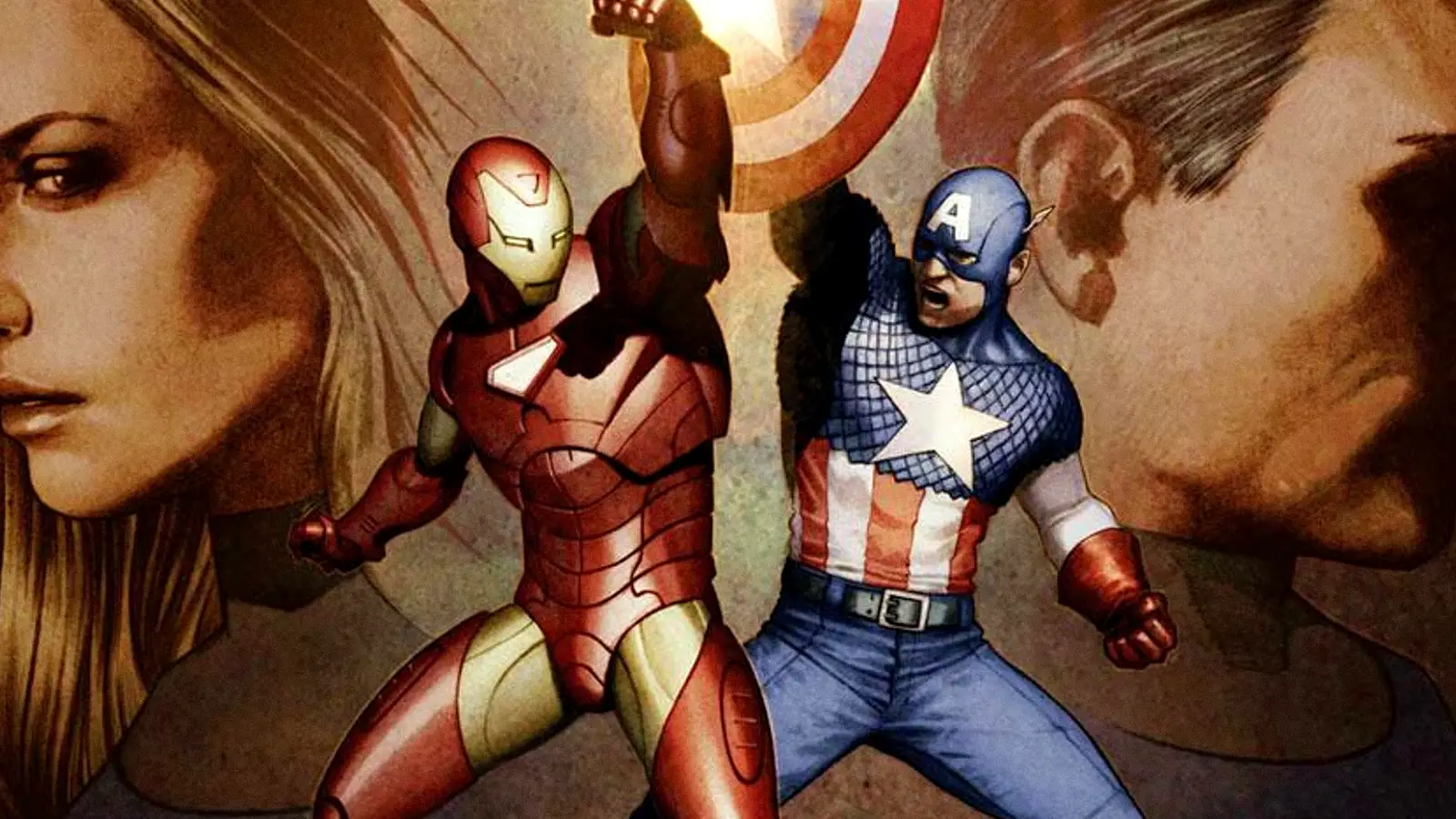
A new Civil War is still possible despite Marvel’s ill-fated attempt to recreate the original event’s success. One of the most compelling aspects of the Marvel Universe is its interconnectivity. Every character, no matter how obscure, can impact all others, and every event ripples into other stories. This is especially apparent in crossover events, where the future of all characters is shaped and defined at the same time.
There’s no doubt Marvel’s original Civil War is the epitome of crossover events. It’s a grounded, ideological war that split Earth’s Mightiest Heroes apart. Its central conflict mirrors real-world debates about freedom versus security and individual rights. Two decades later, the same themes continue to be just as relevant.
Marvel’s Civil War Dynamics Still Have Potential For A New Sequel
Marvel’s Original Civil War Introduced The Perfect Concept For A Hero Vs Hero Conflict
The original Civil War redefined Marvel Comics for years. Rather than a cosmic war or a world-ending threat, Civil War forced Marvel’s greatest heroes into an ideological war that was as personal as it was brutal. Captain America’s defiance of registration laws and Iron Man’s embrace of government oversight had deeply human consequences, even more so than those of a multiverse-rewriting event like Secret Wars.
Heroes, anti-heroes, and villains found themselves weighing the boundaries of their principles. None of them could ignore the political implications of their heroic interventions. Every major character had to choose a side, knowing full well that no choice is morally perfect. And most notably, their attempts to course-correct only added fuel to the fire.
At its core, Civil War asked uncomfortable questions about liberty and state control. Its main conflict felt especially urgent in the wake of real-world anxieties and the rise of the Patriot Act, which directly inspired the Superhuman Registration Act. Once-untouchable icons found themselves hunted down and locked up, showing how a society that fears its protectors can destroy the very ideals those heroes stand for.
Civil War II’s Failure Doesn’t Warrant A Rejection Of Its Premise
Marvel Doesn’t Need To Throw Away One Of Its Most Exciting Concepts Altogether
Unfortunately, Civil War II lacks the moral complexity that made the original so compelling. Where the first event pitted freedom against security with clear and deeply personal stakes, the sequel leaned on the cosmic MacGuffin of a precognitive character. What’s worse, the heroes rarely questioned their stance and instead jumped into battle with the sole intention of wiping out their opponents.
Yet, at its core, Civil War II did have a meaningful idea worth exploring. The battle between determinism and free will; that is, the notion of whether heroes should act preemptively without proof, is fertile ground for debate, especially in a universe where prophecy, time travel, and alternate realities exist. Marvel simply rushed the event, which resulted in straightforward clashes and flat characters.
However, Civil War II’s disappointing attempt to recreate the impact of the original event shouldn’t be taken as proof that Marvel can’t revisit the concept. All the opposite, it highlighted exactly what not to do. An eventual Civil War III could tackle a new moral dilemma that actually forces its protagonists to make tough decisions. If Marvel embraces what worked in Civil War and learns from Civil War II’s shortcomings, another universe-defining event could be on the horizon.
Marvel’s Latest Worldwide Hero Team-Up May Not Last For Long
Doctor Doom’s Reign Could Lead To A Massive Hero Fallout
In 2025, the Marvel Universe is witnessing the exact opposite of a Civil War conflict. Doctor Doom’s successful takeover of the Earth has led all available heroes to join forces against the tyrant, whose grip on power is weakening. While Doom has united Earth’s heroes under one shared cause, he may also plant the seeds for a massive conflict after his inevitable downfall.
In the aftermath of Doctor Doom’s global conquest, Marvel’s heroes could find themselves split by their own visions of justice. One faction might argue for the permanent imprisonment or exile of all villains, believing redemption is too dangerous after Doom’s apocalyptic rule. Opposing them would be those who still champion rehabilitation, warning that a blanket punishment strips away nuance and risks turning the heroes themselves into tyrants.
Another natural fault line could emerge around the question of power itself. After seeing Doom weaponize the mantle of Sorcerer Supreme, one side could call for a sweeping reduction in the authority and strength of Marvel’s most powerful figures, insisting no single individual should hold that much influence again. Their rivals might instead advocate for a chosen protector to safeguard against future tyrants, thus sparking a new debate about trust and power.
What Civil War III Could Be About
Civil War III Needs To Break The Mold
Civil War III could expand into a global struggle. The world’s governments could finally demand accountability from the United States, arguing that its heroes can no longer decide the fate of the entire planet when 99% of Marvel’s battles begin on American soil. Figures like Black Panther or Namor could challenge Iron Man and Captain America and turn Doom’s fallout into a full-fledged international war.
Another angle could pit Marvel’s greatest scientific minds against each other. Reed Richards, Tony Stark, Bruce Banner, and Hank Pym all carry legacies of inventions that spiraled out of control. Their next breakthrough could become the spark for a third Civil War, as each genius fights over its implications and safety. Like the previous two conflicts, Civil War III would attempt to decide the future of crime-fighting.
Marvel could also explore a more radical version, this time led by villains. Leaders like Magneto and Baron Zemo could split the world with their competing visions of a better future, forcing the heroes to intervene as collateral in a battle they didn’t start. Such a storyline would test Marvel’s heroes against each other and against villains trying to rewrite the balance of power.